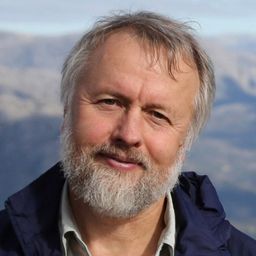
Yuri Demchenko
Yuri Demchenko is a Senior Researcher at the Complex Cyber Infrastructure Research Group of the University of Amsterdam. He is graduated from the National Technical University of Ukraine "Kiev Polytechnic Institute" where he also received his PhD degree. His main research areas include Data Science and Data Management, Big Data Infrastructure and Technologies for Data Analytics and Artificial Intelligence, DevOps and cloud based software development, general security architectures and distributed access control infrastructure. He actively researches on the architectural and design aspects of data spaces for secure and trusted data sharing and processing.
Sessions in which Yuri Demchenko participates
Tuesday 31 August, 2021
The IoT, edge and cloud computing technologies are likely to be global by design. A technology that is developed by focusing only the specific requirements of a regional market may face difficulties to be globally adopted. International collaboration allows researchers to exchange knowledge and combine perspectives to solve challenging problems, often of transversal nature. Nowadays, with a growing number of global challenges such as climate change, infectious diseases, energy and sustaina...
Thursday 23 June, 2022
Inform IoT and research community on the recent developments in Data Spaces widely defined as ecosystem for secure and sovereign data sharing that ensure interoperability at four layers: technical/infrastructure, semantic/metadata, organizational, and legal. Discuss benefits of Data Spaces concept and infrastructure for Research Data Management and Governance.Bring together and discuss form of cooperation between research data community and current Data Spaces community to develop t...
Sessions in which Yuri Demchenko attends
Wednesday 22 June, 2022
The European Commission is preparing an Action Plan on the Digitalisation of Energy (DoEAP), to be published in autumn 2022. Digitalisation is a prerequisite and allows to the efficient and effective operation of the energy system and energy markets. The data includes metering data, data from consumers such as home appliances, building automation, EV charging stations, or prosumers PV panel & inverters. Its availabilit...
Pilot Demonstrators and Industrial Use Cases
Overall IoT and Edge Computing Standardisation ChallengesPolicy and Regulations on IoT and Edge ComputingSDOs on Solving IoT and Edge Computing Standardisation Challenges
Technical Presentations for SMEs and Stakeholders in Data Marketplaces and Data Spaces
DataPorts is a project funded by the European Commission as part of the H2020 Big Data Value PPP programme. It relies on the participation of 13 partners from five different nationalities. The project involves the design and implementation of a data platform and its deployment in two relevant European seaports connecting to their existing digital infrastructures and addressing specific local constraints. The D...
Business Models and Sustainability for Data Spaces and Marketplaces with Stakeholders Interaction
On April 2022, Elon Musk noted that: “At this point, I think I know more about manufacturing tan anyone currently alive on Earth”. Why did he say so? What can be learned from his “Alien” and “Dreadnought” factories? This session will elaborate on the current state of the art on Industrial AI, Digital Twins and Industrial Metaverse and the advances to be seen. Experiences from H2020 Star, HE Circular TAIn and HE R...
Data is seen as the modern oil for driving economy and indeed several major actors (global companies, rich countries) are working on strategies of how to define the evolving data space. It also seems to be agreed that we are in front of a huge transformation due to the ubiquitous digitisation in all domains of life – some call it the next revolution [1]. IoT is not only part of this transformation but one of its motors with its billions of smart ...
This session focuses on standards related to IoT and Edge computing which enable the integration of data spaces. It will cover the following topics:Data space challengesData space standardisationInteroperable data spacesExample of energy data spacesThe move to the Far Edge will have huge economic potential by leveraging a local, distributed computing infrastructure, and it facilitates the creation of...
Open Source and Engagement Networking
The call topic “Future European platforms for the Edge: Meta Operating Systems” targeted for the next generation of higher-level (meta) operating systems for the smart IoT with strong computing capacity at the edge, embedded in a computing continuum from IoT-to-edge-to-cloud. Horizon Europe Cluster 4 projects are launched to strengthen European supply and value chains in cloud to edge computing by integrating relevant elements of computing, connectivity, IoT, AI...
Thursday 23 June, 2022
Digital Platforms have a disruptive impact on industry value chains and organisations which are the providers and users of digital platforms. In order to take advantage of the opportunities and control the risks of change, innovative business models are needed to adapt the business and operational processes, redefining the customer journey and value proposition, discovering new channels and stakeholders engagement models, and creating innovati...
The Internet and the recent connectivity leap are shaping every aspect of our lives, becoming more intelligent and connected. As IoT evolves, it changes how we interact with the internet and it with us. However, the enormous penetration of IoT into our day-to-day life has created a similarly large attack surface that includes high security and privacy risks. The IoT ecosystem now in...
A smart cities education programme developed by Smart Docklands, Dublin City Council (DCC) and CONNECT. The programme aims to bring citizens into the conversation about how technology shapes the places we live through interactive workshops and hands-on activities. The workshop will include an overview of the development of the initiative and a tailored version of the current ‘Visioneers’ engagement stream (aimed at Transition year secondary school students)...